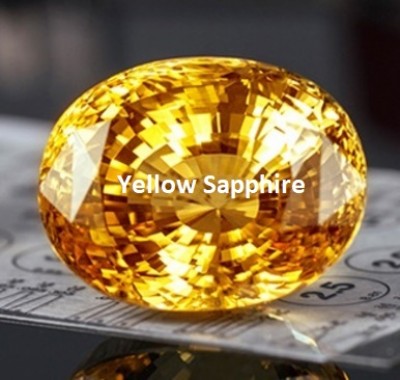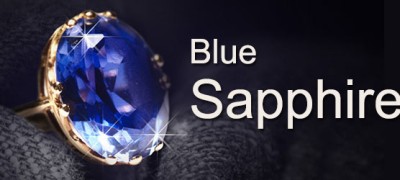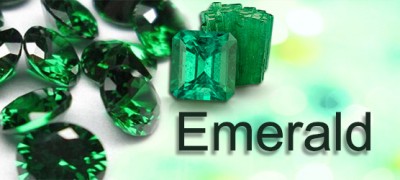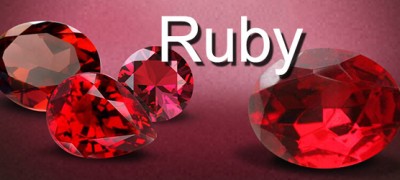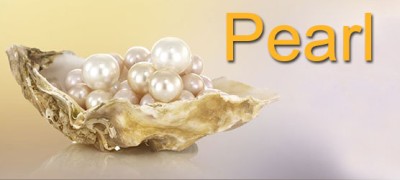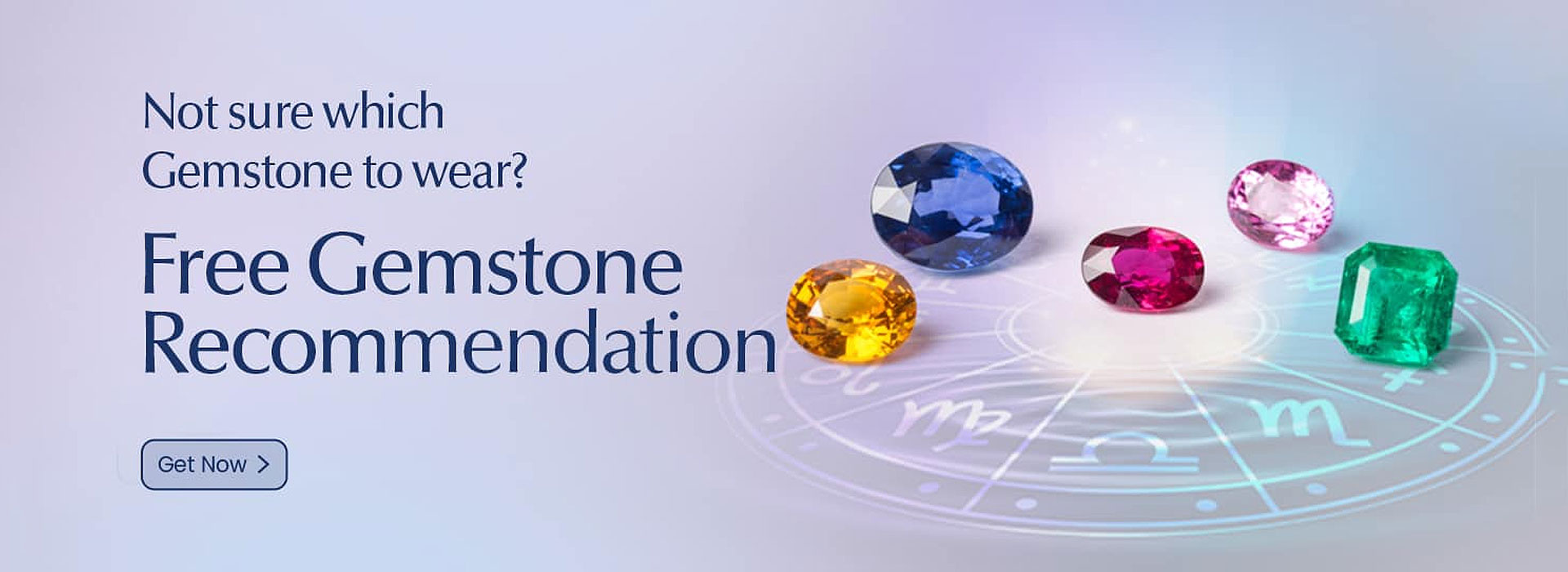Product Description | |
Gemstone Name : | Unheated Yellow sapphire |
Number of Pieces: | 1 Pc |
Weight: | 7.77 ct |
Gem Shape: | Oval mix |
Color: | light yellow |
Clarity: | VVS-eye clean |
Luster: | EXCELLENT |
ORIGIN | SRILANKA |
Measurement | 13.55/9.40/6.68 mm approx |
7.77 Ct Unheated Untreated Natural Ceylon Yellow Sapphire Pukhraj
- Stock: In Stock
- Model: venus619
- Weight: 7.77Ct
₹159,999.00
Available Options
Yellow sapphire is a precious gemstone that is known for its beautiful golden-yellow color. It is also known as Pukhraj in Hindi and is associated with the planet Jupiter in astrology. Here are some of the potential benefits of wearing or using yellow sapphire:1)Brings wealth and prosperity: Yellow sapphire is believed to attract wealth and abundance into one's life. It is said to help with financial stability and success in business.2)Promotes good health:Yellow sapphire is believed to have healing properties and can help with digestive issues, liver problems, and other ailments.3)Enhances spiritual growth:Yellow sapphire is associated with the planet Jupiter, which is associated with spirituality and wisdom. Wearing yellow sapphire is believed to promote spiritual growth and inner wisdom.4)Improves relationships: Yellow sapphire is believed to enhance relationships and promote harmony and understanding between partners.It is important to note that these beliefs are based on tradition and spiritualityAs with any alternative healing practice, it is important to consult with a qualified professional before using yellow sapphire for any health or spiritual purpose.
Yellow sapphire is a precious gemstone that requires proper care and cleaning to maintain its beauty and shine. Here are some tips for caring and cleaning yellow sapphire:1)Cleaning: Yellow sapphire can be cleaned using warm, soapy water and a soft-bristled brush. Gently scrub the stone with the brush, rinse it thoroughly with water, and dry it with a soft, clean cloth.2)Avoid exposure to chemicals: Yellow sapphire should be protected from exposure to harsh chemicals, including cleaning agents, cosmetics, and perfumes. These chemicals can cause damage to the gemstone and affect its appearance and luster.3)Storage: When not wearing yellow sapphire, it should be stored in a soft, padded jewelry box or pouch. This will protect the stone from scratches and other damage.4)Professional cleaning: For deep cleaning or if the stone is heavily soiled, it is best to take it to a professional jeweler who can clean it using specialized techniques.5)Avoid high temperatures: Yellow sapphire should not be exposed to high temperatures or sudden changes in temperature, as this can cause cracking or damage to the stone.Overall, proper care and cleaning of yellow sapphire can help maintain its beauty and value over time. Regular cleaning and protection from chemicals and high temperatures will help ensure that the gemstone retains its luster and shine.
Yellow sapphire is a precious gemstone that is believed to have astrological and metaphysical benefits. Here are some tips on how to wear yellow sapphire:1)Choosing the right metal: Yellow sapphire should ideally be set in gold or a gold alloy, such as 18K or 22K gold. It is believed that the positive energy of the gemstone is enhanced when it is set in gold.2)Wearing it on the right finger: Yellow sapphire should be worn on the index finger of the right hand. According to Vedic astrology, the index finger is associated with the planet Jupiter, which is the ruling planet of yellow sapphire.3)Timing: Yellow sapphire should be worn on a Thursday, which is considered to be an auspicious day for Jupiter. It is also recommended to wear it during the morning hours.4)Maintenance: Yellow sapphire should be cleaned regularly to maintain its positive energy. It is recommended to clean it with a soft cloth and mild soap and water.It is important to note that the use of gemstones for astrological purposes is a complex practice, and it is best to consult with a qualified astrologer or gemstone specialist to determine the best way to wear yellow sapphire based on your individual astrological chart. Additionally, it is important to purchase a high-quality, certified gemstone to ensure its effectiveness
Yellow sapphire is a gemstone variety of the mineral corundum, and it is also known as "pukhraj" in Hindi, which is the most common name used in India. Some other names for yellow sapphire include:Jupiter stone: Yellow sapphire is associated with the planet Jupiter in astrology, and is often referred to as the "Jupiter stone" or "Guru ratna".Oriental topaz: Yellow sapphire is sometimes referred to as "oriental topaz" due to its yellow color, although it is not actually related to topaz.Lohitaksha: This name comes from Sanskrit and means "having red eyes", which is a reference to the yellow sapphire's color.Pushyaraga: This is another Sanskrit name for yellow sapphire, which means "the color of the flower Pushpa".Yellow corundum: Yellow sapphire is a variety of corundum, so it is sometimes referred to simply as "yellow corundum".Citrine: Yellow sapphire is sometimes confused with the gemstone citrine due to their similar colors, but they are different minerals."Pukhraj" is the Hindi name for yellow sapphire. Here are some other names for this gemstone in different languages:Pushparagam or Pushyaragam (Sanskrit)Haritmani or Peetmani (Hindi)Yakut (Arabic)Asphujam (Tamil)Pukhraaj pathar (Bengali)Phukraj (Punjabi)Hiraka (Sinhalese)Padparadscha (Sinhalese, refers to a pink-orange variety of sapphire)Safir Asli (Indonesian)Sar-i-Sang (Persian)
The price of a yellow sapphire can vary greatly depending on several factors such as the quality, size, and origin of the gemstone. Here are some factors that can affect the price of a yellow sapphire:1)Quality: As mentioned before, the quality of the yellow sapphire is a key factor in determining its price. Higher quality stones with brighter, more uniform color, higher clarity, and a well-cut shape will generally be more expensive.2)Size: The size of the yellow sapphire can also have a significant impact on its price. Larger stones are rarer and more valuable than smaller stones.3)Origin: The origin of the yellow sapphire can also affect its price. Sapphires from Kashmir, for example, are highly prized and can command a premium price.4)Treatment: If the yellow sapphire has been treated or enhanced in any way, its price will likely be lower than a natural, untreated stone.5)Certification: A certified yellow sapphire from a reputable gemological institute will generally be more expensive than an uncertified stone.Overall, the price of a yellow sapphire can range from a few hundred dollars to tens of thousands of dollars or more, depending on the factors mentioned above. It is important to purchase from a reputable dealer and to obtain a certification for the stone to ensure its authenticity and value.
The quality of yellow sapphire can have an impact on its astrological and metaphysical benefits. Here are some factors that are considered when determining the quality of yellow sapphire:1)Color: Yellow sapphire should have a bright and uniform color without any dark or dull areas. The color should also be natural, and not enhanced by heat treatment or other methods.2)Clarity: Yellow sapphire should have good clarity, with few or no visible inclusions or blemishes. Higher clarity levels are associated with higher quality stones.3)Cut: Yellow sapphire should be well-cut and symmetrical, with no chips or scratches. A well-cut stone will reflect light more evenly and have a brighter appearance.4)Carat weight: The carat weight of the yellow sapphire can also affect its quality and price. Larger stones are rarer and more valuable, but it is important to balance size with other quality factors.5)Certification: It is important to purchase yellow sapphire from a reputable seller who can provide certification from a recognized gemological institute, such as the IGI, GII. This ensures that the stone is natural and has not been treated or enhanced.Overall, a high-quality yellow sapphire will have a bright, uniform color, good clarity, well-cut facets, and certification from a recognized gemological institute.
Yellow sapphire | Yellow sapphire stone |Pukhraj | Pukhraj Stone | Buy Yellow sapphire | Buy Pukhraj Stone | Natural Yellow sapphire | Ceylon Yellow sapphire | Pushkaraj Stone | Srilankan Yellow sapphire | Unheated Yellow sapphire | Untreated Yellow sapphire | Buy Yellow sapphire Online | Buy Pukhraj Online | Yellow sapphire ring | Pukhraj Ring | Gemstone Ring | Best Yellow sapphire | 1 carat Yellow sapphire | 2 carat yellow sapphire | carat Yellow sapphire | ratti yellow sapphire | 3 ct Yellow sapphire | 4 ct yellow sapphire | 5 ct yellow sapphire | 5 ratti yellow sapphire | Yellow sapphire online india | pukhraj stone online india | 6 carat yellow sapphire price in india | yellow sapphire mumbai | yellow sapphire india | yellow sapphire united states | oval yellow sapphire | emerald cut yellow sapphire | cushion cut yellow sapphire | genuine yellow sapphire | price of pukhraj stone | buy pukhraj stone online | yellow sapphire gemstone | pukhraj gemstone | Yellow sapphire online shopping | Yellow sapphire prices | original yellow sapphire stone | venus jewellers | 3 ratti yellow sapphire | 5 ratti yellow sapphire | jyotish gemstone | Pitambari Yellow sapphire | Bi-colour sapphire | Certified yellow sapphire | certified pukhraj stone | igi certified yellow sapphire | gii certified yellow sapphire |
Yellow sapphire, also known as yellow corundum or yellow Al2O3, has the same chemical composition as other corundum gemstones like ruby and blue sapphire. Its chemical formula is Al2O3, which means it is composed of two atoms of aluminum and three atoms of oxygen.Yellow sapphire also contains trace elements that give it its characteristic yellow color. The most common trace element in yellow sapphire is iron, which can range in concentration from less than 0.01% to over 1%.Here are some other chemical properties of yellow sapphire:1)Hardness: Yellow sapphire has a hardness of 9 on the Mohs scale, which means it is one of the hardest gemstones and is very resistant to scratches and abrasions.2)Density: The density of yellow sapphire is about 3.99 g/cm3, which is slightly higher than that of water.3)Refractive index: Yellow sapphire has a refractive index of 1.76-1.77, which means it has a high level of brilliance and can reflect light well.4)Birefringence: Yellow sapphire exhibits birefringence, which means it can split light into two different directions as it passes through the gemstone.5)Dispersion: Yellow sapphire has a moderate level of dispersion, which means it can separate white light into its spectral colors and create a rainbow effect.Overall, yellow sapphire's chemical properties make it a durable and beautiful gemstone that is suitable for use in jewelry and other decorative applications.
Yellow sapphire is a precious gemstone that belongs to the corundum mineral family, which also includes ruby. The color of a yellow sapphire can range from pale yellow to deep golden yellow. Here are some of the different types and origins of yellow sapphire:1)Ceylon Yellow Sapphire: This type of yellow sapphire is found in Sri Lanka, which was formerly known as Ceylon. It is known for its high clarity and bright yellow color.2)Montana Yellow Sapphire: This type of yellow sapphire is found in Montana, USA. It is typically a paler shade of yellow than other types of yellow sapphire.3)African Yellow Sapphire: This type of yellow sapphire is found in Africa and is known for its bright, intense yellow color.4)Brazilian Yellow Sapphire: This type of yellow sapphire is found in Brazil and is often a deeper, golden-yellow color.5)Padparadscha Sapphire: This is a unique type of sapphire that is a blend of pink and yellow, creating a beautiful salmon color. It is most commonly found in Sri Lanka and Madagascar.When selecting a yellow sapphire, it's important to consider its origin, color, and clarity, as these factors can affect its value and overall beauty.

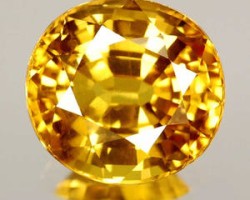
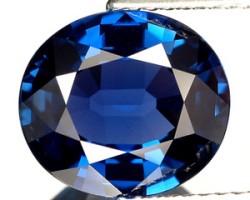
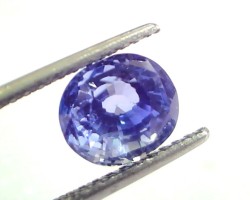

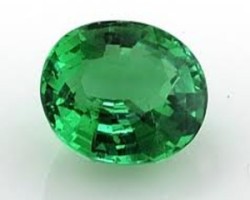
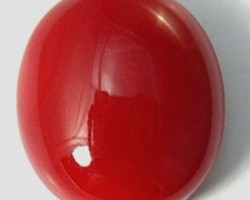
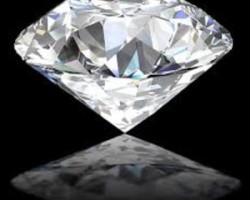
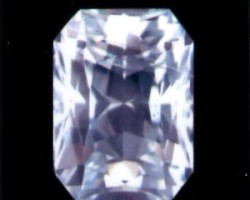
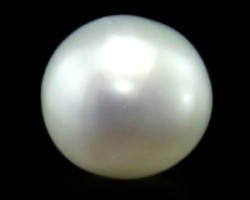

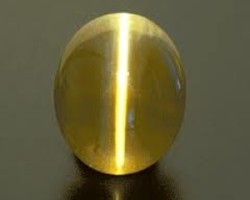

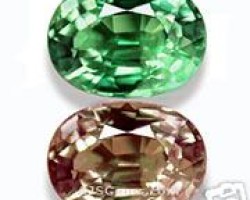
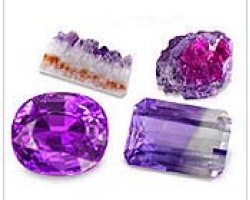
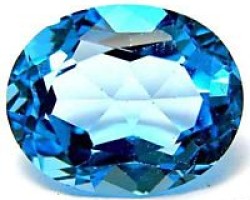
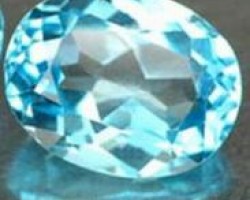
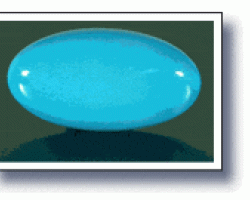
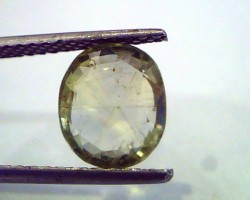
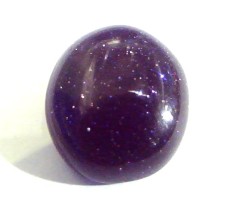
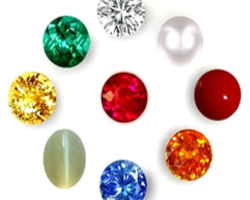
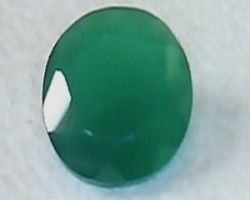

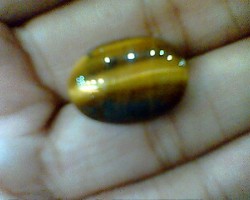
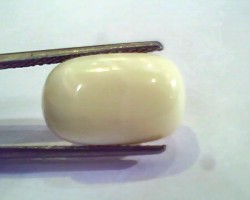
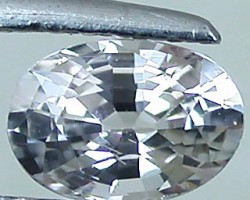
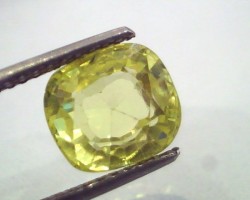
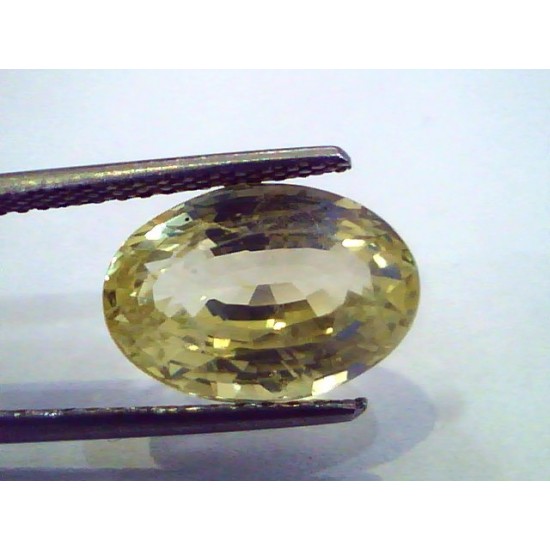
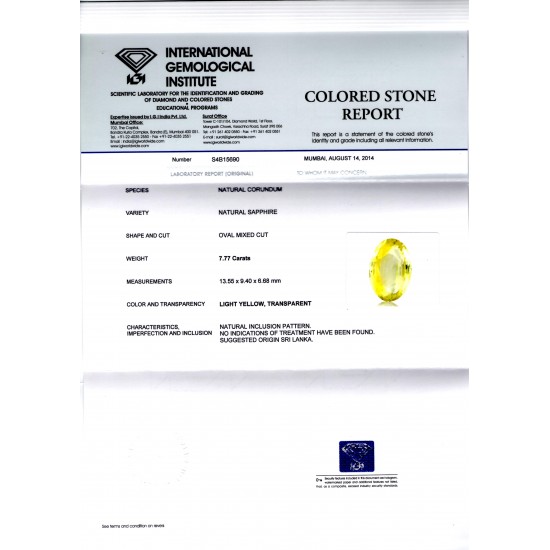


-80x80.jpeg)










